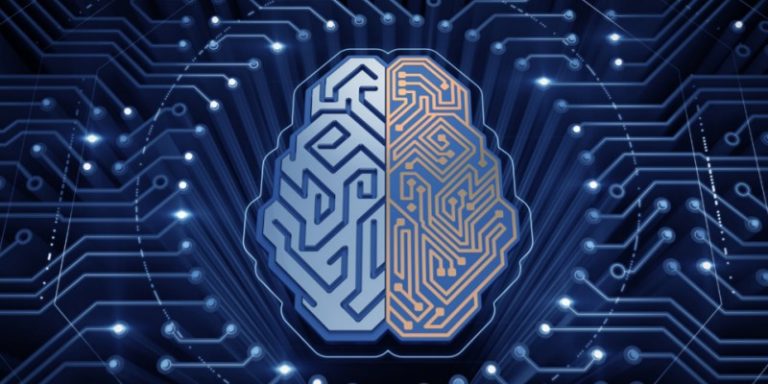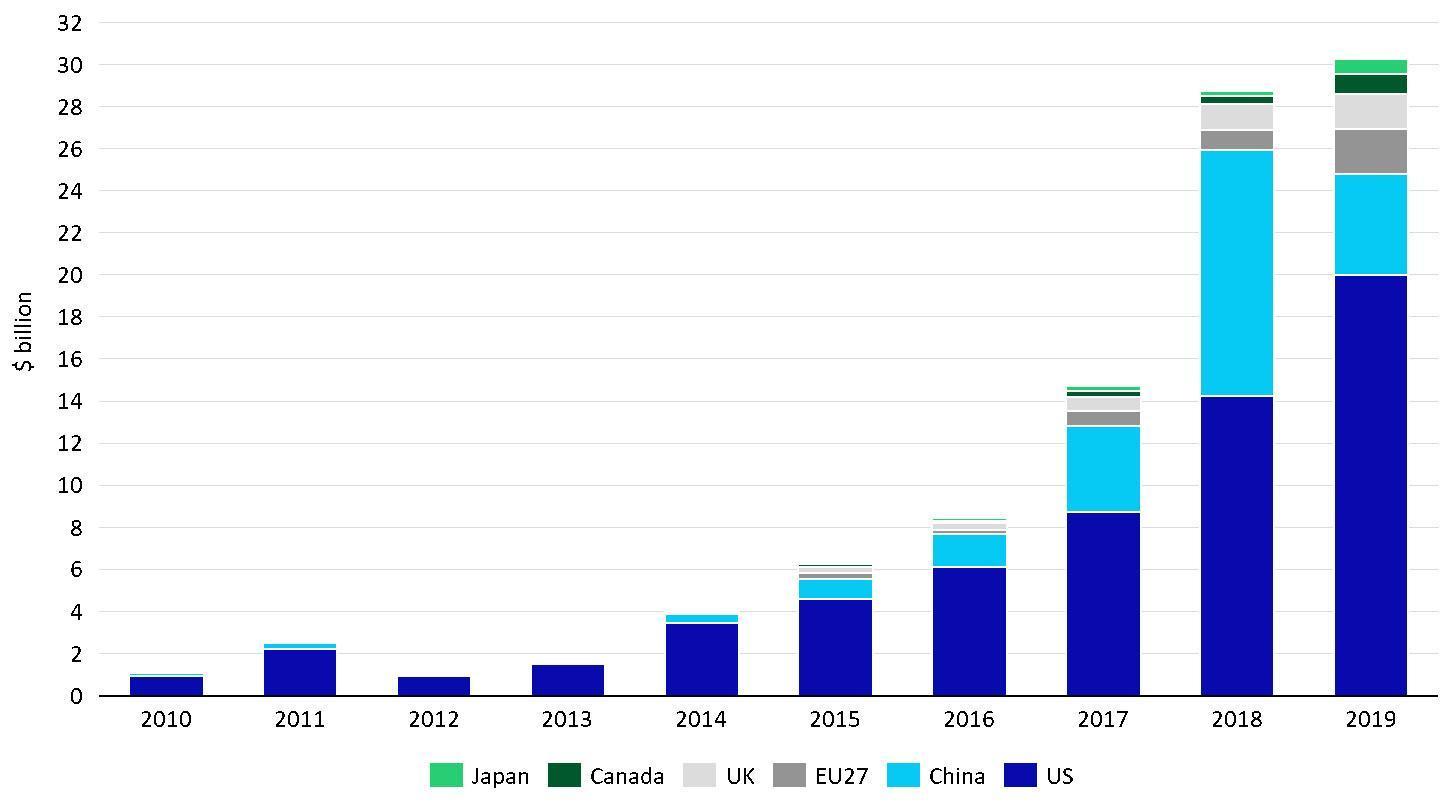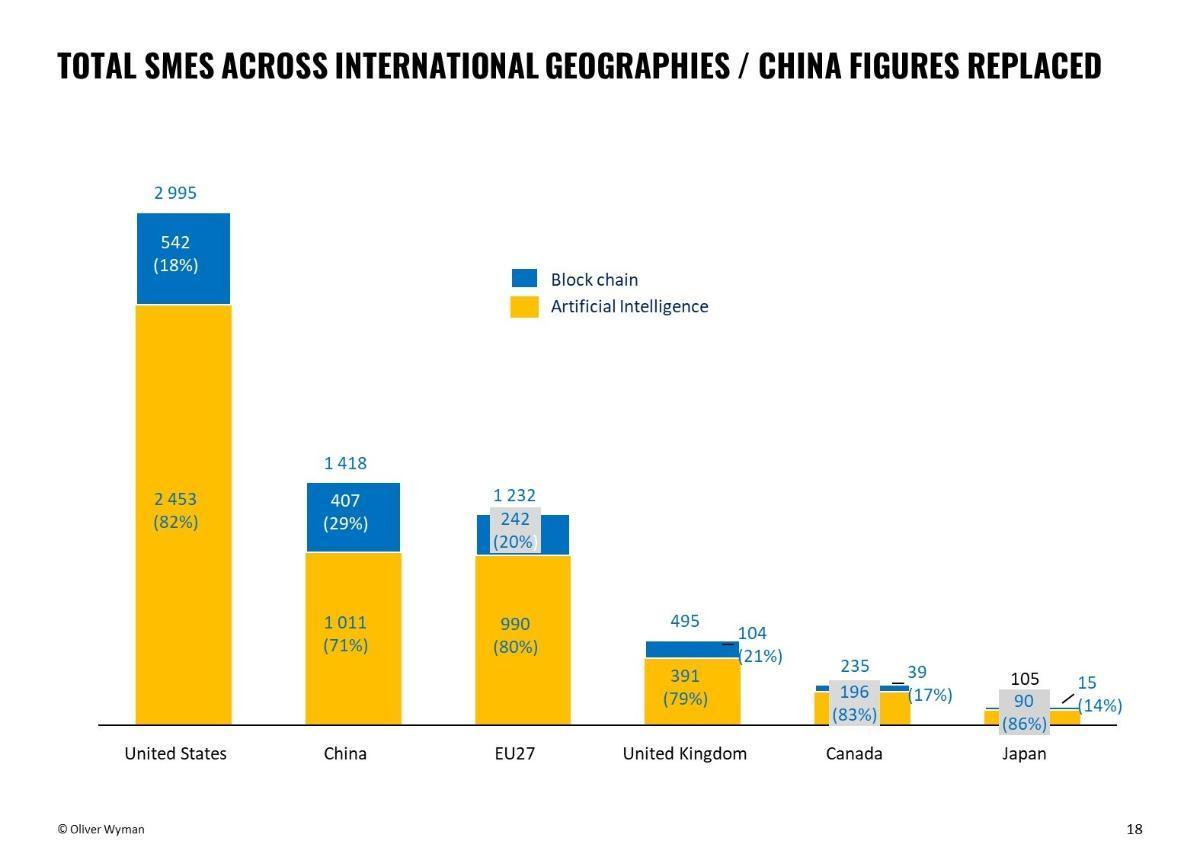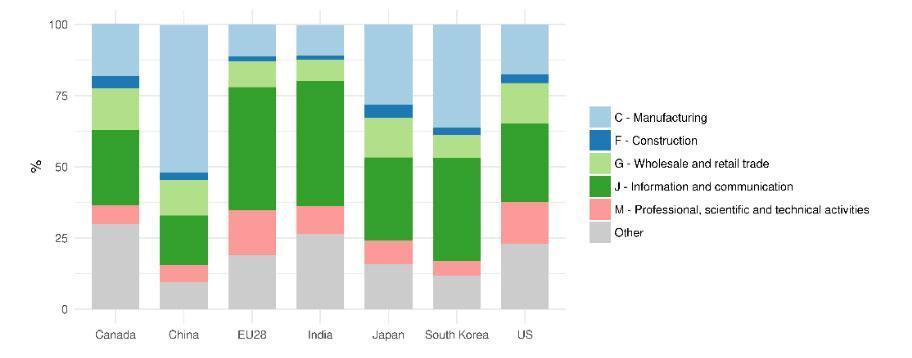
On June 1, the European Investment Bank (EIB) published a detailed reportaround artificial intelligence and blockchain. The document reports that the European Union is responsible for only 7% of the global annual investments made around these two technologies, unlike China and the United States, which account for 80% of the market. The annual investment gap in these two sectors amounts to EUR 10 billion: a sum that the EU must invest if it wishes to remain competitive.
EIB report on investment in artificial intelligence and blockchain
The report, entitled “Artificial intelligence, blockchain and the future of Europe”, shows that the European Union is lagging significantly behind its competitors in the deployment of AI and blockchain-related innovations. These two technologies seem to be the ones that will play a central role in Europe’s digital transition strategy as well as in strengthening its technological sovereignty.
This study by the EIB states that the two sectors account for €25 billion in annual investments, 80% of which is assumed by the US and China. About €1.75 billion, or 7% of the investment, is made by the 27 EU Member States, a far cry from the €20 billion spent by the two superpowers. The report therefore advises the EU to get back on track by investing nearly €10 billion in blockchain and AI.
Graph representing the overall investments made by different countries around blockchain and AI :

The European Union lags further behind in both sectors
The study shows that the largest number of SMEs involved in AI and blockchain is in the US with 2,995 companies, followed by China with 1,418 structures, and finally the European Union with 1,232 SMEs. The UK alone includes 495 companies specializing in both technologies. Within the EU, Germany and Austria have the largest number, followed by the Southern European nations and then France. 
This gap, as well as the investment gap, can be explained by the smaller role played by large institutional investors such as pension funds, foundations and insurers in funding blockchain and AI startups.
Another chart highlights the sectors in which artificial intelligence is being exploited. While in Europe, India, Canada or the United States, AI companies operate much more in the information-communication fields or in professional, scientific and technical activities, in China, half of the AI companies come from the manufacturing sector.

Catching up
The EIB study shows that, like the United States and China, the European Union has a large pool of specialists with great competitive potential. Even better, the 27 member states have more blockchain and AI researchers than either China or the US, and their research is much more technology-focused than either country. 43,064 AI researchers were identified in Europe, including 7,998 in the UK, 28,539 in the US and 18,232 in China. Some member countries have performed well in the digital sector, indicating that the EU has the capacity to be able to develop AI and blockchain-related systems in several sectors.
In the report, three major areas were highlighted: development, market deployment and the EU innovation ecosystem.
These three areas are to be prioritised according to the EIB: the EU needs to leverage much more funding to deploy and develop AI companies. The 27 member countries must put in place joint efforts to pool all private and public sector financial resources to support these blockchain and AI companies. To grow further, European innovation clusters are also urged to better connect to increase the flow of talent, skills and experience to access funding.
Translated from L’Union européenne accuse un retard conséquent en matière d’intelligence artificielle et de blockchain









